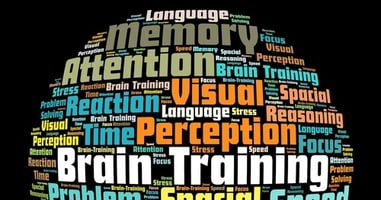Cognitive Remediation Plus Transcranial Stimulation May Slow Cognitive Decline in At-Risk Patients

Treating older adults with cognitive remediation (CR) plus transcranial direct current stimulation (tDCS) was effective in slowing cognitive decline in older adults with remitted major depressive disorder, according to a study issued by JAMA Psychiatry.
“Older adults with mild cognitive impairment (MCI) or a major depressive disorder (MDD) constitute two overlapping groups that are at high risk for cognitive decline and dementia,” wrote Tarek K. Rajji, M.D., at the Centre for Addiction and Mental Health in Toronto, and colleagues. “There is also a substantial body of evidence supporting that a depression occurring in early or mid-life, even if it has been in remission for years or even decades, can double or triple the risk of dementia in late life. Thus, interventions that could reduce this risk are needed.”
Rajji and colleagues recruited 375 participants from five academic hospitals in Toronto, who had remitted MDD, MCI, or both. Some were randomized to receive CR plus tDCS targeting the prefrontal cortex for eight weeks, five days a week, followed by twice-a-year five-day booster sessions of tDCS plus CR; participants were also asked to do at-home CR exercises daily. For the CR, a therapist trained participants on completing computerized exercises and provided them with ways to apply these skills to everyday difficulties. Other participants received sham tDCS and sham CR. Researchers conducted assessments at baseline, two months, and then yearly for three to seven years (median follow-up time was four years).
The primary outcome was the participants’ change in global composite cognitive score; secondary outcomes included change in short-term cognition and delayed progression to MCI or dementia.
The study showed that CR and tDCS did slow cognitive decline—particularly executive function and verbal memory—in participants over five years, though the effect was stronger in adults with remitted MDD (with or without MCI) than those with just MCI. The researchers found CR plus tDCS did not have any short-term effects on cognition relative to sham treatment, nor did it delay the progression from MCI to dementia.
“Our study was not designed to determine whether the observed benefits are due to CR plus tDCS or one of them alone,” Rajji and colleagues wrote. “Still, given the small and nonsignificant effects of CR on global cognition in [other] long-term studies, including in patients with mood disorders, our findings suggest that adding tDCS to CR augmented its procognitive effects.”
For more information see the Psychiatric News article, “New Medication, Staging Criteria Signal a Potential Shift in Alzheimer’s Care.”
(Image: Getty Images/iStock/Daisy-Daisy)
Don't miss out! To learn about newly posted articles in Psychiatric News, please sign up here.





